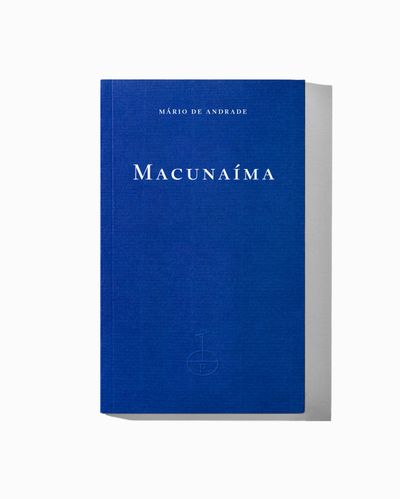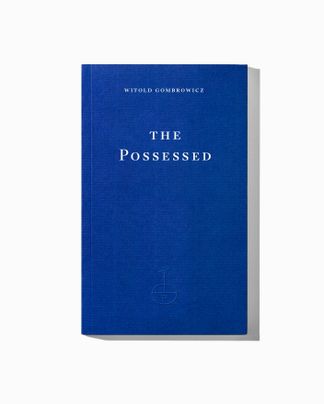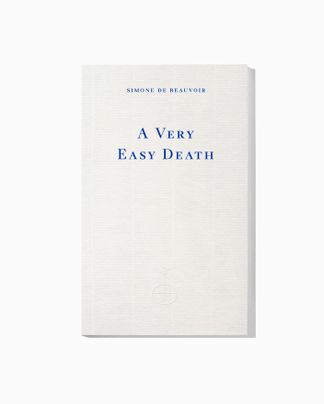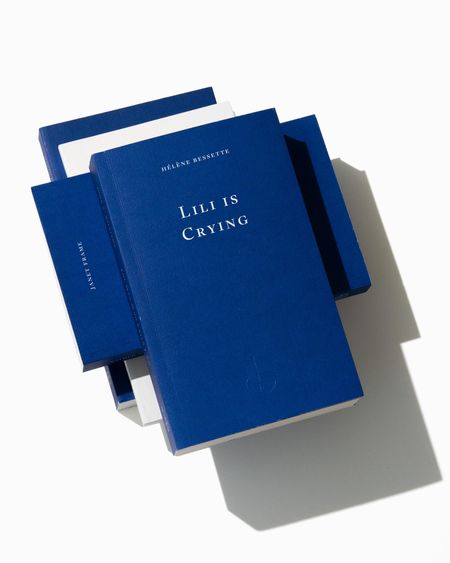Here at last is an exciting new translation of the modernist Brazilian epic Macunaíma, by Mário de Andrade. This landmark novel from 1928 has been hugely influential. It follows the adventures of the shapeshifting Macunaíma and his brothers as they leave their home in the northern Amazon for a whirlwind tour of Brazil, cramming four centuries and a continental expanse into a single mythic plane. Having lost a magic amulet, the hero and his brothers journey to São Paulo to retrieve the talisman that has fallen into the hands of an Italo-Peruvian captain of industry (who is also a cannibal giant). Written over six delirious days – the fruit of years of study – Macunaíma magically synthesizes dialect, folklore, anthropology, mythology, flora, fauna, and pop culture to examine Brazilian identity. This brilliant translation by Katrina Dodson has been many years in the making and includes an extensive section of notes providing essential background information for this magnificent work.

Macunaíma
Translated by Katrina Dodson, with an introduction by John Keene
Fitzcarraldo Classics No.1 | French paperback with flaps, 320 pages
Published 17 May 2023
Macunaíma
Translated by Katrina Dodson, with an introduction by John Keene
In the depths of the virgin-forest was born Macunaíma, hero of our people. He was jet black and son to fear of the night. There came a moment when the silence grew so great listening to the murmuring Rio Uraricoera, that the native Tapanhumas woman birthed an ugly child. That child is the one they called Macunaíma.
Even as a boy he did bewildering things. First off he went more than six years without talking. If they coaxed him to talk he’d holler:
“Ah! just so lazy!…”
and not a word more. He kept to a corner of the family maloca, perched on a platform of paxiúba palm, watching the others work, specially his two brothers, Maanape the geezer and Jiguê in the prime of manhood. For fun he’d pick the heads off saúva ants. All he did was lie around but if ever he set eyes on money, Macunaíma would toddle for a penny. And he’d perk up whenever the family went to bathe in the river, all naked together. He’d spend the whole time diving underwater, and the women would squeal in delight on account of those guaiamum crabs said to inhabit the freshwater there. Back at the family mocambo if a girl came up to cuddle, Macunaíma would stick his hand on her charms, the girl would jump back. As for the males he’d spit in their faces. Nevertheless, he respected the elders and wholeheartedly joined in the murua the poracê the torê the bacororô the cucuicogue, all the religious dances of the tribe.
When it was time for bed he’d climb into his little macuru, always forgetting to pee. Seeing as his mother’s hammock was right under his hanging cradle, the hero’s steaming piss would splash onto the old woman, shooing the mosquitoes real good. Then he’d drift off dreaming of bad-words and outrageously immoral acts, kicking at the air.
At the peak of day the women’s chatter always came round to the hero’s naughty pranks. They’d laugh knowingly, remarking, “Though you may be expectin’ a little tickle, even a pipsqueak thorn packs a prickle,” and during a Pajelança ceremony King Nagô gave a speech and revealed that indeed the hero was intelligent.
Soon as he turned six they gave him water out of a rattle and Macunaíma started talking just like everybody else. And he asked his mother to put down the manioc she was grating and take him for a walk in the woods. His mother didn’t want to cause she couldn’t just put down the manioc, nossir. Macunaíma sat whining all day long. At-night he kept wailing. The next day he waited with his left eye a-snoozing for his mother to start her work. Then he asked her to put down the basket she was weaving from guarumá-membeca grasses and take him for a walk in the woods. His mother didn’t want to cause she couldn’t just put down the basket, nossir. So she asked her daughter-in-law, Jiguê’s gal, to take the boy. Jiguê’s gal was very young and her name was Sofará. She came up hesitating but this time Macunaíma stayed stockstill without sticking his hand on anybody’s charms. The girl put the kid on her back and went out to where the aninga lily grew along the banks of the river. The water had lingered there to plunk out a whimsical tune on the fronds of the javari palm. Off in the distance it was a pretty sight to see, with lotsa biguá and biguatinga birds darting round where the river branched off. The girl put Macunaíma down on the shore but he started whining, there were too many ants!…and he asked Sofará to bring him up to the ridge deeper in the forest. The girl did. But no sooner did she lay the tot down among the tiriricas, tajás and trapoerabas on the forest floor, than he grew manly in a flash and became a handsome prince. They were out there walking a good long time.
When they got home to the maloca the girl seemed mighty worn out from carrying the kid on her back all day. It was because the hero had played around with her a whole lot… No sooner did she lay Macunaíma in his hammock than Jiguê came back from net fishing and his gal hadn’t done a lick of work. Jiguê flew off the handle and after picking for ticks really laid into her. Sofará weathered the blows without a peep.
Jiguê didn’t suspect a thing and started braiding a rope from curauá fiber. He’d just spotted some fresh tapir tracks and was fixing to make a trap to catch the critter. Macunaíma asked his brother for a bit of curauá but Jiguê said it weren’t no kiddie toy. Macunaíma started wailing again and it was one helluva night for them all.
Next day Jiguê got up bright and early to set the trap and seeing the kid pouting he said:
“Good morning, everybody’s lil sweetheart.”
But Macunaíma sulked silently.
“Don’t wanna talk to me, huh?”
“I’m mad.”
“What for?”
Then Macunaíma asked for some curauá fiber. Jiguê glared at him and told his gal to get some twine for the boy. The girl did. Macunaíma thanked her and went to ask the pai-de-terreiro to braid him a rope and blow some petum smoke over it.
When everything was good and ready Macunaíma asked his mother to leave her caxiri brew fermenting and take him for a walk in the woods. The old woman couldn’t on account of her work but Jiguê’s sly sweetie told her mother-in-law that she was “at your command.” And she went into the woods with the kid on her back.
When she put him down among the carurus and sororocas on the forest floor, the little one started growing started growing and turned into a handsome prince. He told Sofará to hold on a sec he’d be right back so they could play around and went to lay a snare at the tapir’s watering hole. No sooner did they get home from their walk, mighty late, than Jiguê also came back from setting his trap on the tapir’s tracks. His gal hadn’t done a lick of work. Jiguê was mad as heck and before picking for ticks really let her have it. But Sofará weathered the beating with patience.
Next day as the dawn rays were just clearing the treetops, Macunaíma woke everybody up, bawling frightfully, to hurry! hurry over to the watering hole and fetch the critter he’d caught!… However, nobody believed him and they started in on the day’s work.
(…)
‘Dodson’s translation captures all the playfulness of the Portuguese text. The Brazilian colloquialisms are transposed to a fizzy American vernacular, but flora and fauna maintain their original names, inviting a surrender to the story’s strange, defamiliarising atmosphere. Andrade conceived of Macunaíma as one long poem or “troubadour ballad”: we’re lucky to hear it sung in English.’
— Pablo Scheffer, Telegraph
‘Macunaíma is above all a vision of mythical Brazilian consciousness, a picaresque epic of birth, triumph, decline and death.’
— New York Times
‘Katrina Dobson’s translation, employing a colloquial American diction with palpable African American and Deep South overtones, gives Macunaíma a consistent, credible voice in English. She inhabits and breathes life into the novel as though she were a revenant from the Brazilian jungle of a century ago…. It is not only Brazil’s complexity that Mário de Andrade captures, but that of the Americas as a whole, and to some extent that of the entire modern world.’
— Stephen Henighan, Times Literary Supplement
‘Macunaíma is a self-consciously nation-founding novel that reads like a thick broth of painful historical truth, quoted myth, and irreducible pleasures. Rarely is so much pleasure given and pain revealed by overlapping languages.’
— Arto Lindsay
‘An explosion of language.… The obvious comparison for English speakers would be Ulysses, as an encyclopedia of styles, of language forms.’
— Fredric Jameson
‘He’s an anti-hero hero, questioning and contradictory. Macunaíma is an emblem of the marvelous, metamorphosed into the errant question mark of his one-legged constellation. An anti-normative hero who points to a future, eventually more open, world.’
— Haroldo de Campos
‘Mário wrote our Odyssey and, with a swing of his native club, created our classical hero and the national poetic idiom for the next fifty years.’
— Oswald de Andrade
‘A deliberately provocative text, slangy, comical, antiliterary, assuming all the apparent contradictions of the struggle against European seriousness in its various forms.‘
— Pascale Casanova
‘Macunaíma is a miracle. There’s nothing like it in all of literature. Katrina Dodson is a hero.’
— Mario Bellatin, author of Beauty Salon
‘We are so fortunate that Mário de Andrade’s rollicking Macunaíma is finally reappearing in English in Katrina Dodson’s dazzling translation.’
— John Keene, author of Counternarratives
‘Dodson, a PEN Award-winning translator of Clarice Lispector, breathes new life into this spirited modernist classic from Brazillian writer de Andrade…. Electrifying and perplexing, this cornerstone of Brazilian literature shouldn’t be missed.’
— Publishers Weekly, starred review
‘Over the course of seventeen chapters and an epilogue, violent parables and raunchy parodies nestle within one another to create a dazzling and chaotic Luso-tropical Holy Grail epic…. Perhaps through Dodson’s masterful work, Andrade will finally be widely read alongside Joyce, Woolf, and Kafka, and Brazilian modernism will be cemented in a canon that has largely excluded authors from Latin America.’
— Meg Weeks, The Baffler
‘[T]old in urbane vernacular but with a vast vocabulary of indigenous words that would have been foreign even to metropolitan Brazil, [Macunaíma is] a reading experience that is wholly disorientating. It is also –perhaps rare for a modernist work – a lot of fun…. Andrade knew that the best way to begin a conversation was with a smile and a joke. Reading him almost a century later, his message is as simple and efficient as any good punchline: keep talking.’
— David McAllister, Prospect
Mário de Andrade (1893–1945) was a poet, novelist, cultural critic, ethnomusicologist, and leading figure in Brazilian culture. He was a central instigator of the 1922 Semana de Arte Moderna (Modern Art Week), which marked a new era of modernism. He spent much of his life pioneering the study and preservation of Brazilian folk heritage and was the founding director of São Paulo’s Department of Culture.
Katrina Dodson’s translation of The Complete Stories by Clarice Lispector was awarded the 2016 PEN Translation Prize, the Lewis Galantière Award, and a North California Book Award. She holds a PhD in Comparative Literature from the University of California, Berkeley.
John Keene is the author, co-author, and translator of a handful of books, including Annotations and Counternarratives, published by Fitzcarraldo Editions in 2016. A 2018 MacArthur Fellow, he is Distinguished Professor and serves as department chair at Rutgers University-Newark.





